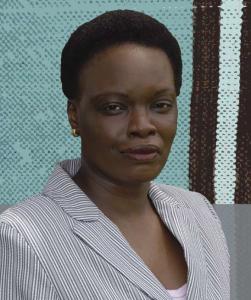Africa Looks Inward to Stem Illicit Financial Flows (IFFs): The Global North Should Play its Part
Substantial initiatives to stop illicit financial flows from Africa should top President Biden's US-Africa Leaders Summit, Dec 13-15, 2022 agenda.
WASHINGTON, DC, U.S., October 27, 2022 /EINPresswire.com/ -- As we look forward to President Biden hosting the second US-Africa Leaders Summit on December 13-15, which will build on President Obama's 2014 Summit, top on the agenda must be substantial initiatives regarding illicit financial flows from Africa, particularly proceeds of corruption, and the US position as a destination for political elites to store illicit cash.
The August 2022 US Strategy Towards Sub-Saharan Africa talks of collaboration with African governments, civil society, and the public to strengthen openness and accountability, mainly through investigative journalism, countering digital authoritarianism and enshrining laws, reforms, and practices that promote shared democratic principles – but falls short of a road map to promote fiscal transparency, expose corruption, and support reforms in collaboration with African partners. Tax evasion represents a significant portion of illicit financial flows out of Africa.
"There is a misperception quite often when we talk about tax havens and financial secrecy that these are located in exotic, Caribbean locations; [in fact, they are hiding in plain sight in] the Global North," said Ovonji-Odida, who serves on the United Nations' High-Level Panel on International Financial Accountability, Transparency and Integrity for Achieving the 2030 Agenda, speaking at the September 28-29 10th Pan African Conference on Illicit Finance and Taxation – organized by Tax Justice Network Africa (TJNA), Africa Tax Administration Forum (ATAF), and Centre for Trade Policy Development (CTPD).
Held under the theme "Resource Mobilization: A solution to Tackle Africa's Multiple Crises." Conference participants worked to develop revolutionary solutions for key policy actors involved in mobilizing domestic resources, such as African governments, lawmakers, and civil society organizations.
It is without a doubt that mobilizing domestic resources requires changing the global tax architecture to ensure that everyone, including multinational corporations, is paying what they owe while also improving, where possible, and creating, where necessary, the systems needed to curb international trade abuses, which account for the largest part of illicit flows from Africa.
While wealthy countries lose more to tax evasion, those dollars represent a much smaller percentage of their budgets. As a result, the theft has a far smaller impact on services paid for by taxes: healthcare, infrastructure, education, and other essential services.
During the conference, participants discussed the current global climate and its effect on African countries' ability to mobilize resources for recovery fairly and equitably. According to the African Economic Outlook 2022 on supporting climate resilience and a just energy transition in Africa, the continent will require at least USD 432 billion to mitigate the effects of Covid-19.
The annual climate funding shortfall is $127.2 billion from now until 2030, widening Africa's funding deficit due to the economic interruptions caused by the conflict between Russia and Ukraine. These economic shocks only raise the poverty levels of millions of Africans. As such, African governments have had to devise means to provide more support to their people despite having less money to do it.
A resolution to work with multilateral organizations, the African Union, African governments, and civil society to improve transparency and ease customs at border points across the continent to curb illicit financial flows is a step in the right direction. The US- Africa Leaders Summit presents a major opportunity to address the elephant in the room on strategic collaborations, with round table deliberations to figure out how the US can work with African governments to curb illicit financial flows and shocks from the Ukraine/Russia war.
*Author: Patricia Ainembabazi, Atlas Corps Research and Advocacy Fellow at the FACT Coalition and US-Africa Bridge Building Project Advisor. Patricia works on political theory, human rights, international public law, and international relations.
Imani Countess
US-Africa Bridge Building Project
+1 443-542-7099
email us here
Visit us on social media:
Facebook
Legal Disclaimer:
EIN Presswire provides this news content "as is" without warranty of any kind. We do not accept any responsibility or liability for the accuracy, content, images, videos, licenses, completeness, legality, or reliability of the information contained in this article. If you have any complaints or copyright issues related to this article, kindly contact the author above.

